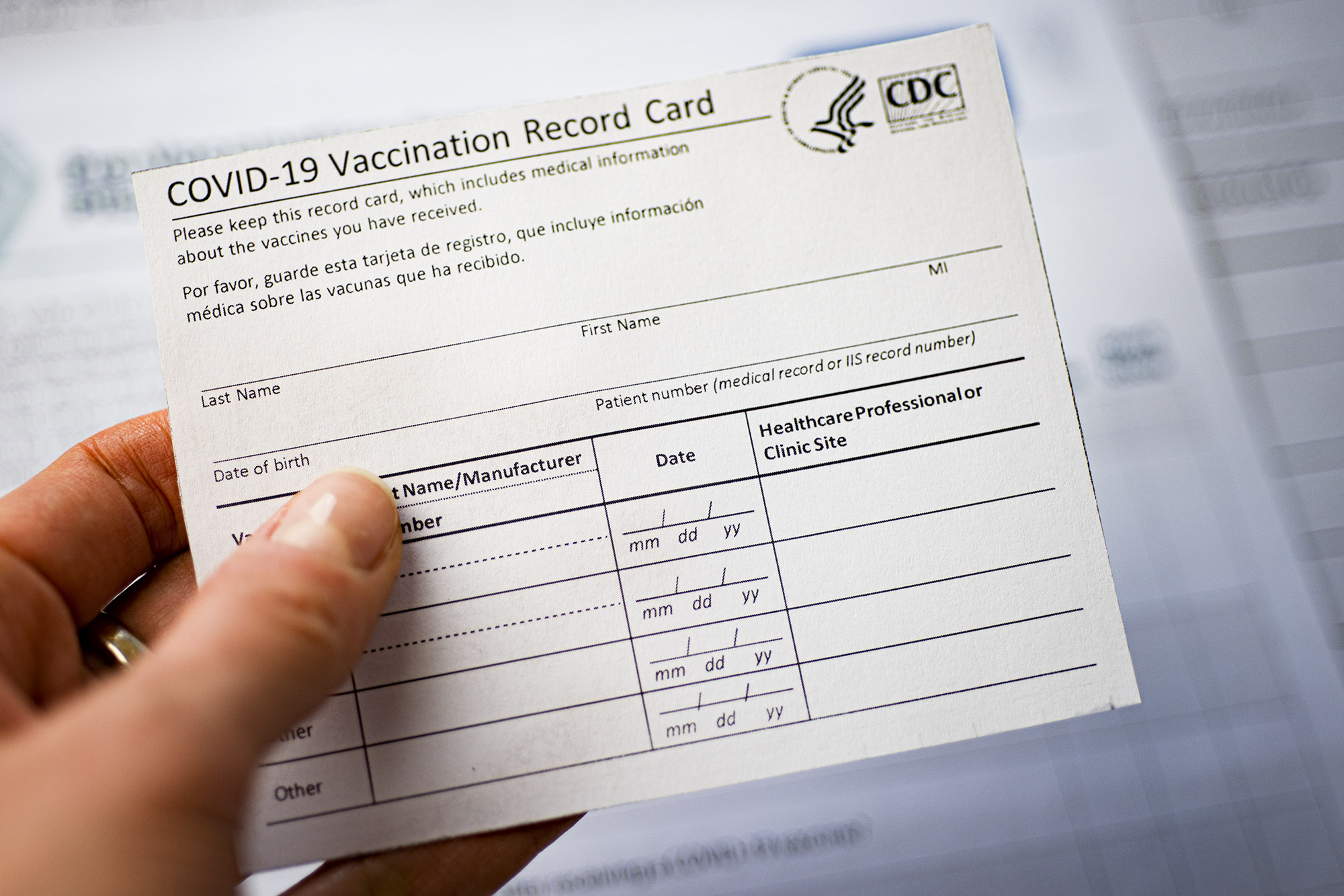A professor at the University of Virginia School of Law predicts that as COVID-19’s delta variant continues to spread and vaccines continue to receive permanent FDA approval, states, schools and employers will make it harder to avoid vaccination.
Margaret Foster Riley has written and presented extensively about health care law, health disparities and chronic disease. In 2020, she was appointed to a new National Institutes of Health advisory committee on biotechnology.
With Monday’s approval of the Pfizer-BioNTech vaccine, Riley answered questions about how much leeway vaccine-hesitant individuals will have, as well as the obstacles they may face.
Q. The state’s power to mandate vaccination has been used conservatively. Could that change with final FDA approvals?
A. Vaccine mandates are typically a power left to the states – with some exceptions, notably the military, immigrants and federal workers, who are subject to federal power and have more limited rights to refuse a vaccine. States do have significant power to enforce mandatory vaccinations if the public health need is sufficient. The controlling case is (still!) Jacobson v. Massachusetts, a 1905 Supreme Court opinion wherein the court upheld Massachusetts’ power to mandate smallpox vaccination during an outbreak in the state.
State power has only been involved recently when the mandates have been issued by state universities and state-related health systems or for individuals traveling into the state. That may change if the public health need becomes even more urgent. It may also change as FDA approval is granted to more of the vaccines.
The state power is not without limits, of course. There must be a genuine public health need (as determined by the state), and today, most courts would probably also recognize the need for an exemption for individuals who would suffer bodily harm by being vaccinated (although they might still be subject to some mitigation controls such as masking or frequent testing). Although most COVID vaccination mandates also include religious exemptions, it is less clear that those would always be required.

Law professor Margaret Foster Riley also is a professor of public health sciences at the School of Medicine, and professor of public policy at the Batten School of Leadership and Public Policy. (Photo by Jesús Pino)
Q. Will businesses increasingly tie vaccination to employment?
A. Businesses can require proof of vaccination as a condition for entry on the premises. There are limits in the sense that the business cannot make that demand in a way that discriminates against a protected class. So, for example, you could not target a specific ethnicity in requiring such proof. You may need to provide accommodations for individuals who can prove a relevant disability. The Americans with Disabilities Act (and the Rehabilitation Act in the case of government employees) likely requires that exception.
One of the most influential factors in fighting vaccine hesitancy has been employer action. When you tie vaccination to livelihood, more people pay attention. When Walmart and Disney imposed vaccine mandates, that had an impact. Recently, a health insurer mandated vaccination even for its remote workers. And it has also helped to require vaccination for entertainment that people want to attend. New York has been a leader in this, and it has been effective in getting people vaccinated.
Q. Will the courts will continue to uphold vaccinations in higher education?
A. Colleges have both the right and obligation to protect their students and employees, and to adopt reasonable mitigation strategies. Epidemics pose additional risks to college populations because residential living, classroom activities and many extracurricular activities involve large numbers of people and multiple shared spaces. So long as the mitigation strategies are reasonable and enforced in a legal fashion, the courts are likely to uphold them. In the context of COVID, vaccination and testing have been recommended by the CDC as the best mitigation strategies, with additional masking when prevalence of the disease is high.
Q. Will requirements for K-12 vaccinations likely depend on a combination of FDA approvals and a state’s overall health picture?
A. Primary and secondary schooling are required, and that changes the calculus somewhat, although in a worsening public health context, it is still possible to imagine COVID vaccine mandates for school children and employees. All states, after all, mandate childhood vaccines for school attendance. Again, FDA approvals (full approval is not expected for children for some time) may also make mandates more likely for this population. If the public health need requires mandatory vaccination, schools would likely have legal support for vaccine mandates.
Q. It seems vaccine hesitancy will continue because of ideological disputes and misinformation. What is your reaction to that?
A. Vaccine hesitancy is unfortunately nothing new, so we’ve got considerable experience finding public health remedies. We also know that there are many reasons for vaccine hesitancy; some of it is ideological, some is disinformation or lack of information, a few situations involve religious beliefs and in many cases, there is just inertia that gets in the way.
In the case of COVID vaccines, the situation is complicated by the (fortunately) rapid development of the vaccines that are currently available, that the FDA has not yet given full approval to all of the vaccines and that all aspects of COVID have been politicized. The speed and ubiquity of social media also complicate matters. Since there are so many reasons for vaccine hesitancy, each reason must be addressed separately, and the White House COVID Task Force is attempting to do so. They have sought diverse thought leaders to educate people and have even used a bus tour to reach more remote communities.
Q. Full FDA approval should help with vaccine hesitancy. What do you see as some of the pros and cons?
A. The fact that all the authorized vaccines have not yet gotten full approval by the FDA has certainly complicated the process. Some of that may be pretext; some people who oppose vaccination currently use this as their reason, but that may change once approval has been achieved.
But there is also a great deal of confusion about the approval process, and some of the early guidance for the emergency use authorizations added to that confusion. In addition, some people genuinely believe that they cannot trust the safety of the vaccines until full approval has been authorized. The currently authorized vaccines have been very well studied and the risk of vaccination for all authorized populations appears far lower than the risks inherent in contracting COVID-19. Moreover, safety is not the only consideration that the FDA must be concerned about in the approval process. Once the vaccines have been fully approved, the FDA loses considerable power to dictate prescribing practices and to require data submission.
Q. The problem of forged vaccine cards may be lessened by confirmation technology – and the threat of federal charges. How does that work?
A. Some states are already setting up systems through which a vaccinated individual can obtain a confirmation of their vaccination status. For example, in Virginia, you can obtain such a confirmation at vaccinate.virginia.gov. That official record should help with concerns about forgery, although it will not completely eliminate problems.
At this time, I think most retail and entertainment venues will accept vaccine cards that are presented to them. Employers or schools that impose a vaccine mandate must take extra steps to work with an employee or student if they believe that they have been presented with a forgery. And would-be forgers should also be aware that forging a federal logo (and vaccine cards have the CDC logo on them) is a federal crime.
Media Contact
Article Information
August 24, 2021
/content/delta-spreads-professor-makes-7-vaccine-mandate-predictions

